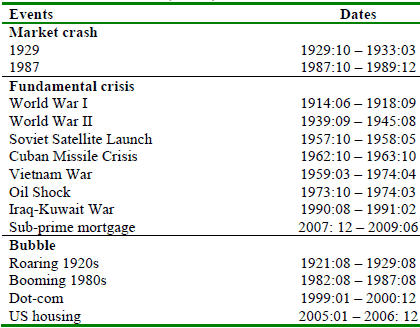Is there a steady, zero or varying supply of stock market return predictability? In their January 2010 paper entitled “Stock Return Predictability and the Adaptive Markets Hypothesis: Evidence from Century Long U.S. Data”, Jae Kim, Kian-Ping Lim and Abul Shamsuddin employ a battery of tests to evaluate the evolution of U.S. stock market return predictability over the last century and determine whether this evolution is consistent with the Adaptive Markets Hypothesis. Using monthly Dow Jones Industrial Average (DJIA) return data, along with various indicators of market conditions and economic fundamentals, for 1900 through 2009, they conclude that:
- Consistent with the Adaptive Markets Hypothesis, stock market return predictability varies based on market conditions. Many past empirical findings of predictability during limited sample periods may be artifacts of data snooping bias.
- There is no evidence of return predictability during market crashes, perhaps due to extreme uncertainty in predictability.
- Stock returns are highly predictable during economic and political crises, with a moderate degree of uncertainty. During such crises, predictable investor misreactions may be especially strong.
- During economic bubbles, return predictability is low.
- Stock market returns exhibit some predictability before 1980, but little predictability subsequently. Innovations in trading technologies, markets, regulations and broker practices may have increased market efficiency. Also, the past few decades may have been more stable politically and economically than prior decades.
- Economic fundamentals have little influence on stock return predictability.
The following table, taken from the paper, lists the characterizations and durations of the market crashes, crises and bubbles considered in the study.

In summary, evidence indicates that U.S. stock market returns may be significantly predictable during economic and political crises, but not during market bubbles and crashes. Investor misreaction to crises, not economic fundamentals, appear to drive stock return predictability.